Germans Want Less Europe and Love France
Adelina Marini, September 19, 2013
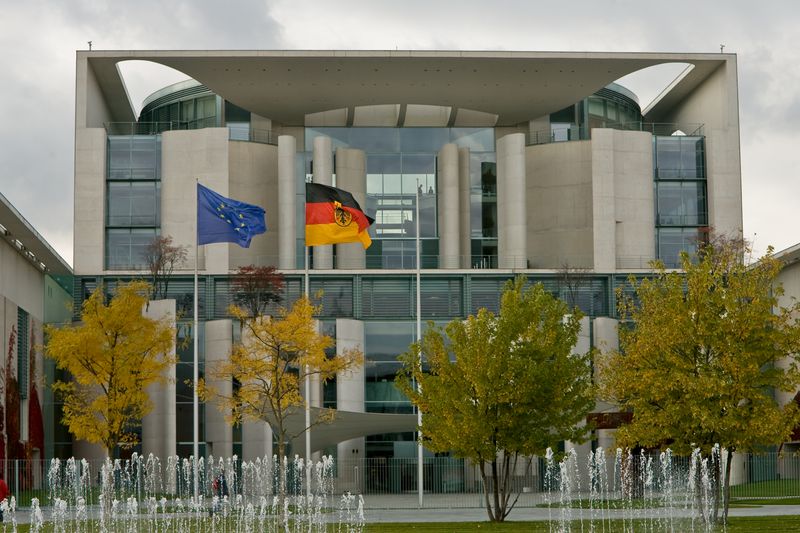 In spite of the huge ambitions of the European Parliament the next elections in May 2014 to be a tipping point for that European institution, the trust of the citizens of a key EU member state is the least precisely in that institution. This becomes clear from the latest Open Europe poll in Germany on the eve of the federal elections on September 22nd. The results show that the Europarliament and the European Commission, which under Jose Manuel Barroso has been insisting for deepening of the European integration, enjoy the least trust of the German citizens - 33% trust the EP and 30% the Commission. To compare, the German parliament and government got respectively 45% and 44% trust, if it is at all possible to make such a comparison given the different tasks these institutions have.
In spite of the huge ambitions of the European Parliament the next elections in May 2014 to be a tipping point for that European institution, the trust of the citizens of a key EU member state is the least precisely in that institution. This becomes clear from the latest Open Europe poll in Germany on the eve of the federal elections on September 22nd. The results show that the Europarliament and the European Commission, which under Jose Manuel Barroso has been insisting for deepening of the European integration, enjoy the least trust of the German citizens - 33% trust the EP and 30% the Commission. To compare, the German parliament and government got respectively 45% and 44% trust, if it is at all possible to make such a comparison given the different tasks these institutions have.
According to the poll conducted by YouGov Deutschland, the trust of the German citizens in EU institutions is in permanent decline if compared with Eurostat polls. In the autumn of 2007 52% of the Germans trusted the European Parliament and 46% the Commission. Biggest trust Germans have in their Constitutional Court - 71% - which can be explained with the key role the court has with regard to Germany's participation in the measures to resolve the eurozone crisis. In this sense, it is telling that the Bundesbank has lost credibility during the crisis and its reputation has fallen to 47% although the European Central Bank, too, does not enjoy big German trust - 38%.
The data from the poll also show that the Germans growingly prefer less Europe which is reflected in Chancellor Merkel's statement recently that it is possible some powers to be returned to the member states. Half of the respondents said the next German chancellor will have to support the efforts of some European politicians for a decentralisation of EU powers on national, regional and local level. This explains why David Cameron is the most liked European politicians - by 30% of the Germans. Second is Francois Hollande and third Mark Rutte, the Dutch prime minster who is also a staunch supporter of a distancing from Brussels. 41 per cent of the Germans want the EU to have less powers, while 36% want the status quo to be maintained and 23 per cent wish the EU to have more powers.
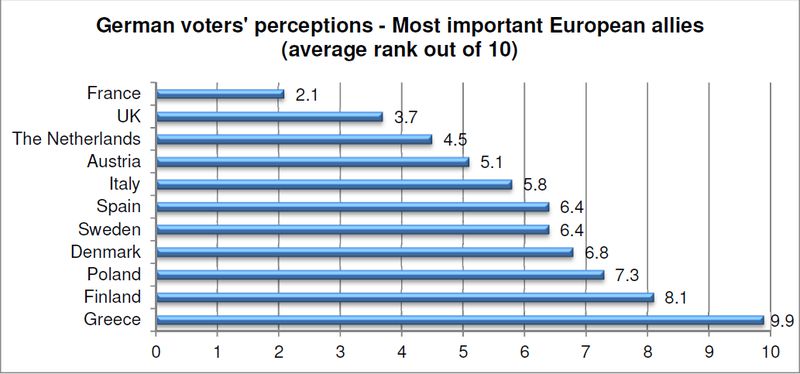 60 per cent believe that national parliaments should get more powers to block unwanted European legislation. Opponents to this idea are 25% of the respondents. The decisions about subsidies for regional development should be taken by national politicians, not on European level. This is the desire of 61% of those asked. 58% believe that agriculture subsidies should be national and two thirds want a reduction of Germany's contribution to the EU budget. 20% are against. Six in every ten voters believe that the decisions related to justice, data protection and environment should be taken by national politicians instead of EU level. Half (51%) are of the opinion that the decisions about internal EU migration should be national. On this issue 30 per cent disagree with this position.
60 per cent believe that national parliaments should get more powers to block unwanted European legislation. Opponents to this idea are 25% of the respondents. The decisions about subsidies for regional development should be taken by national politicians, not on European level. This is the desire of 61% of those asked. 58% believe that agriculture subsidies should be national and two thirds want a reduction of Germany's contribution to the EU budget. 20% are against. Six in every ten voters believe that the decisions related to justice, data protection and environment should be taken by national politicians instead of EU level. Half (51%) are of the opinion that the decisions about internal EU migration should be national. On this issue 30 per cent disagree with this position.
Mentioning the sympathies Germans hold to David Cameron, the poll also says that their support for UK staying in the EU is big. 53% stated that UK's leaving would be very bad in principle and also for the economic and political interests of Germany. 57% said this would have a negative impact on EU's credibility. In spite of the big support for the British, France remains the Germans' great love. Half disagreed with the position that Germany and Britain are more natural allies in Europe than Germany and France. Another poll that shows ever more clearly in what direction the next German chancellor will go even if that is our well known Angela Merkel.
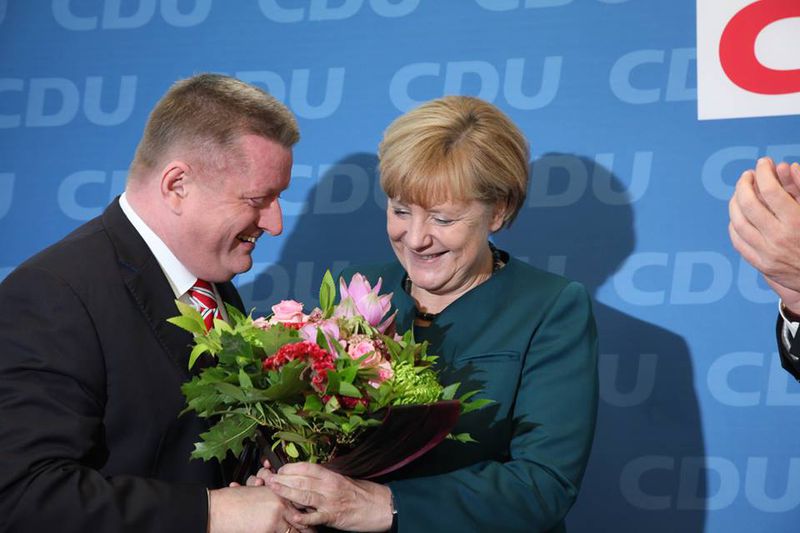 Angela Merkel | © CDU
Angela Merkel | © CDU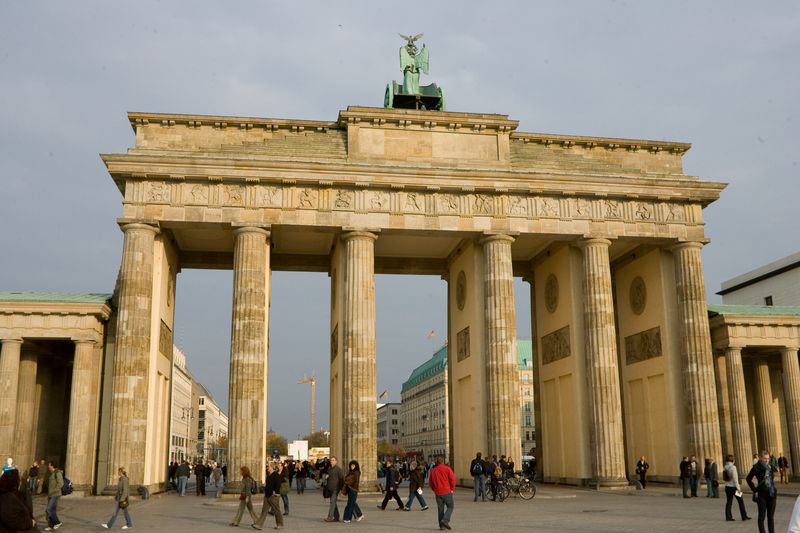 | © European Commission
| © European Commission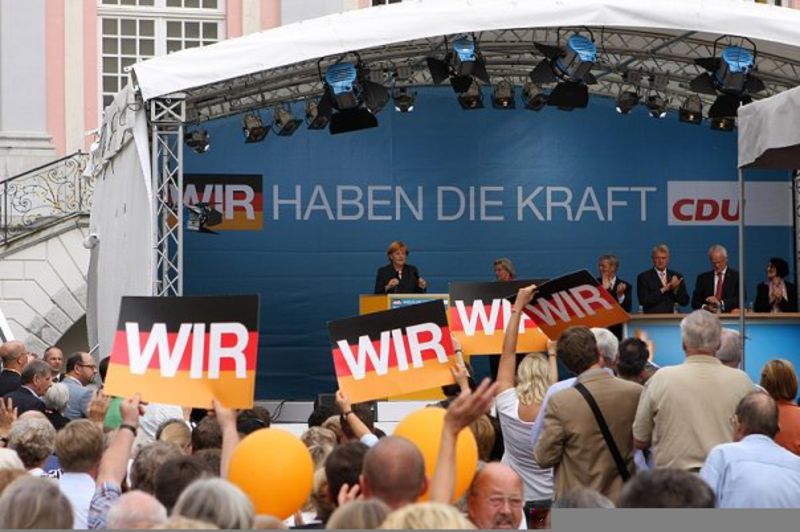 | © CDU
| © CDU